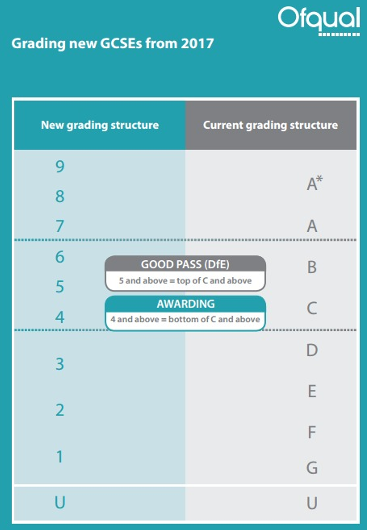ASSESSMENT, REPORTING AND MARKING
Reporting
ASSESSMENT, REPORTING AND MARKING
Reporting
ASSESSMENT, REPORTING AND MARKING
Reporting
Home > Assessment, Reporting and Marking > Reporting

Teachers normally complete three interim reports per year at KS3. In each interim report teachers may record three grades: a grade for Attitude to Learning, a grade for Behaviour and a grade for Aptitude in Subject.
Attitude to Learning and behaviour
- To ensure that we have successful learners we promote the development of an excellent attitude to learning within our students, successful learners show resilience when faced with new challenges; the Attitude to Learning grade is a measure of this.
- This can only be done effectively if it is an integral part of our teaching, as well as our day-to-day interactions with students.
- The attitude to learning grade captures a student’s attitude towards both classwork and homework.
The descriptors below explain what an excellent attitude to learning means:
Aptitude
- The Aptitude in Subject grade is a holistic judgment, which captures where students currently are on their learning journey. The grade descriptors for the Aptitude grades are as follows:
- Excellent (X)
- Good (G)
- Requires Improvement (RI)
- Cause for Concern (C)
Attitude to Learning Descriptor:
In this lesson you have …
- been well equipped, ready to learn and you have made the best use of your learning time
- made strides towards improving your work
- taken full responsibility for your learning both inside and/or outside of school (including homework)
- taken pride in your work
- been a positive role model for your peers
- listened and contributed positively throughout the lesson
- completed work to the very best of your ability
shown resilience and independence.
Behaviour Descriptor:
In this lesson you have behaved in an exemplary manner.
- you followed all instructions and took control of your own learning
- you were given no warnings
- you avoided all distractions
- you have done your best to support the learning of others.
Attitude to Learning Descriptor:
In this lesson you have …
- been equipped, ready to learn and you have made good use of your learning time
- made some strides towards improving your work
- taken some responsibility for your learning both inside and/or outside of school (including homework)
- taken pride in your work
- been a positive role model for your peers
- listened and contributed positively to the lesson
- completed work to the best of your ability
shown some resilience and independence.
Behaviour Descriptor:
In this lesson you have behaved in an appropriate manner.
- you followed all instructions
- you were given no warnings
- you avoided all distractions.
Attitude to Learning Descriptor:
In this lesson you may not have …
- been fully equipped, ready to learn and you haven’t made the best use of your learning time
- made enough effort to improve your work
- taken responsibility for your learning both inside and/or outside of school (including homework)
- always taken pride in your work
- always been a positive role model for your peers inside and outside of lessons
- always listened and contributed positively
- completed work to the best of your ability and have given up too easily
you have not shown enough resilience and independence YET.
Behaviour Descriptor:
In this lesson your behaviour has required improvement. It might be that...
- you had to be reminded to stay on task
- you received a warning
- you did not avoid all distractions.
Attitude to Learning Descriptor:
In this lesson you may not have …
- been fully equipped, ready to learn and you haven’t made the best use of your learning time
- made any effort to improve your work
- taken responsibility for your learning both inside and/or outside of school (including homework)
- taken pride in your work
- been a positive role model for your peers inside and outside of lessons
- listened and contributed positively
- completed work to the best of your ability and have given up too easily
you have shown little or no resilience and independence.
Behaviour Descriptor:
In this lesson your behaviour has not been acceptable and has disrupted the learning of others.
Below. Your child is working towards excellence in the topics being studied. During this stage of their learning they have not yet grasped the skills and subject knowledge to the level of proficiency which their teacher believes they are capable.
Expected. Your child has developed a good understanding of the topics being studied. At this stage of their learning in this subject they have demonstrated good levels of skill and knowledge in relation to the topics studied.
Strong. Your child has developed an excellent understanding of the topics studied. At this stage in their learning they have demonstrated excellent skills and knowledge.
- Progression is not linear and so students will not always make the same amount of progress each term. Well planned Schemes of Learning in each subject area ensure that students are constantly presented with new knowledge and skills; sometimes students are successful and grasp these concepts and ideas with relative ease, at other times the work will be more challenging, and the students will not always be successful straight away.
- This is a perfectly normal part of the learning journey. However, we are vigilant in identifying the students who are not making the required progress so that we can support them in achieving excellence.
- Using the Aptitude in Subject and Attitude to Learning grades we work closely with subject leaders to identify students who may require further support to ensure that this is put in place.
- We also identify the students who are performing exceptionally well and look to challenge them further.
What this looks like in practice - Examples:
Example 1
| Aptitude in subject this term | Attitude to learning | Behaviour | |
|---|---|---|---|
| Maths | Below | Good | Good |
- In this example the student’s aptitude has been graded as ‘below’ meaning that there are aspects of the curriculum in Maths that he/she has not yet grasped at a level that can be expected.
- This could be a cause for concern but it does not necessarily mean that the child is not making progress. We will also look at the student’s other grades to determine if there is an issue.
- This student’s Attitude to learning and Behaviour in Maths are both good which suggests that in spite of finding the work challenging they have continued to work hard and behave well.
- This positive attitude will be crucial in helping this student to overcome the challenges that they have faced this term in Maths.
- Working with the subject leader we will determine the level of intervention required for this student at this stage, if any.
Example 2
| Aptitude in subject this term | Attitude to learning | Behaviour | |
|---|---|---|---|
| English | Below | Requires Improvement | Requires Improvement |
- In this example the student has not developed a good understanding of the topics studied and their attitude to learning is graded as Requires Improvement (RI).
- This student is not making the required progress in their learning of the English curriculum and their Attitude to Learning is a barrier to their progress, so appropriate guidance and intervention will be put in place.
The Role of the Form Tutor
- The form tutor plays a pivotal role in helping the students to understand where each student is in relation to their expected progress in each subject area. Following each interim reporting period students must complete the self-evaluation process in their pastoral booklet.
- This is a designated activity during self-evaluation week, and is supported by school assemblies, which requires all students to evaluate their current progress and set targets to enable future success.
Reporting progress to parents and students Key Stage 4
- Each student is given an aspirational target at Key Stage 4 (FLHS Target). This will be shared with students at appropriate points during the course.
- The FLHS Targets are based on data from FFT. FFT calculates estimates from the Value-Added score of students in the previous year’s results datasets.
- Each student has a unique set of estimates which are calculated from the results and Value-Added scores of students similar to them. Similar students are identified by their:
- Prior attainment (their previous Key Stage assessments)
- Gender
- Month of birth
Numerical Grades/BTEC Grades
- In line with government changes GCSE subjects are reported and graded in numerical grades on a scale of 1-9. Grade 9 is the new highest grade.
- Not all subjects use numerical grades, the Vocational courses use Pass, Merit, Distinction and Distinction*.

Fine Grades
We use a fine grading system to report a student’s grade. The ‘fine grade’ is shown to the right of the main grade, in ‘numerical’ or ‘letter format’.
- An ‘a’ next to the grade (e.g. 4a or P2a ) indicates that it is secure and the teacher is confident that this is the grade the student is currently working at.
- A ‘b’ next to the grade (e.g. 4b or P2a) indicates that it is almost secure. The teacher is largely confident that this is the grade that he/she is currently working at.
- A ‘c’ next to the grade (e.g. 4c or P2a) indicates that it is not yet secure. The student has at times shown the potential to achieve this grade but may not achieve the grade at the end of Y11. More work is required to secure the grade fully.
What this looks like in practice (KS4)
Example 1
| Subject | FLHS Target | Attitude to learning | Behaviour | Current Grade |
|---|---|---|---|---|
| English | 7 | Good (G) | Good (G) | 7b |
- In the example above the student has been given a grade 7 as an FLHS target for History. The student is demonstrating a positive Attitude to Learning and their Behaviour is good.
- The teacher has graded the student 7b, suggesting that they are largely confident that the student is working at a grade 7, although this grade is not totally secure.
The Role of the Form Tutor at Key Stage 4
- The form tutor plays a pivotal role in helping the students to understand where each student is in relation to their expected progress in each subject area. Following each interim reporting period students must complete the self-evaluation process in their pastoral booklet.
- This is a designated activity during self-evaluation week, and is supported by school assemblies, which requires all students to evaluate their current progress and set targets to enable future success.
A Gough
Assistant Headteacher, July 2021
References and further reading
- ‘Embebbed Formative assessment’ – Dylan William, solution tree press, 2011
- ‘The research ED guide to Assessment’ – Donarski and Bennet, John Catt Educational, 2020.
- ‘A Marked Improvement’ – Elliot, Baird and Hopfenbeck et.al EEF and Oxford Univeristy, April 2016.
- ‘Teacher feedback to improve pupil learning – guidance report’ – Collin and Quigley, EEF 2021.
- ‘The Four Pillars of Great Assessment’ – Evidence Based Education.
- ‘How learning happens’ – Kirschner and Hendrick. Routledge, 2020

